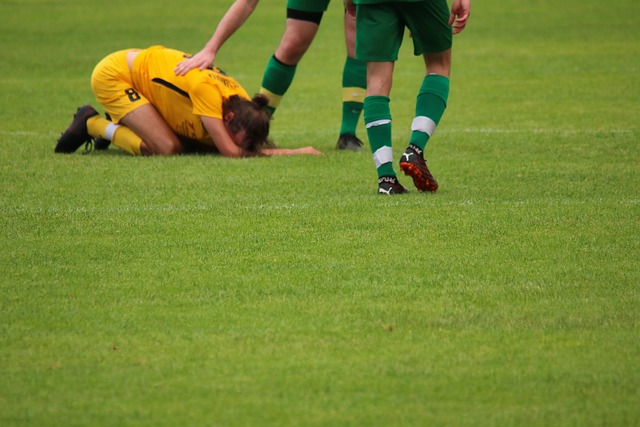Pedestrian accident injuries can cause more than physical harm; they often lead to severe emotional trauma like anxiety and PTSD, requiring professional therapy for recovery. Cognitive consequences may include TBI and lasting impacts on brain functions vital for daily life, necessitating long-term support and rehabilitation. A holistic approach combining legal assistance from personal injury attorneys and mental health services is crucial for healing both physical and psychological pedestrian accident injuries.
Pedestrian accidents can have profound psychological effects, leaving survivors grappling with emotional trauma and cognitive challenges. This article delves into the intricate landscape of psychological healing after severe pedestrian accident injuries, exploring key aspects such as emotional recovery, cognitive impacts on brain functions, and the importance of long-term psychological support for adaptive healing. Understanding these elements is crucial in navigating the complexities of post-accident mental health.
- Emotional Trauma and Recovery After Pedestrian Accidents
- Cognitive Impacts: Brain Functions and Injuries
- Psychological Support for Long-Term Healing and Adaptation
Emotional Trauma and Recovery After Pedestrian Accidents

Pedestrian accidents can leave victims with not just physical injuries but also profound emotional trauma. The shock and stress of such incidents often lead to heightened anxiety, depression, and post-traumatic stress disorder (PTSD). Recovery from these psychological effects is a complex process that requires time, patience, and professional support. Many victims find solace in therapy, where they can process their experiences, express emotions, and develop coping mechanisms.
Seeking help from mental health professionals is crucial for navigating the emotional aftermath of a pedestrian accident. A car accident lawyer Boca Raton or Orlando auto accident attorney can guide survivors towards seeking medical malpractice compensation, which may include funding for psychological care. With the right support, individuals can begin to heal and rebuild their lives, albeit gradually. The journey to recovery is unique for each person, emphasizing the importance of personalized care and understanding in addressing the emotional scars left by pedestrian accident injuries.
Cognitive Impacts: Brain Functions and Injuries

Pedestrian accident injuries can have profound cognitive impacts, affecting various brain functions crucial for daily life and decision-making. The brain is a complex organ, and severe trauma can disrupt its intricate network of neurons and neural pathways. This disruption may result in a range of symptoms, from mild memory lapses to more severe conditions like traumatic brain injuries (TBI).
In cases of serious injuries, the cognitive effects can be long-lasting and affect multiple domains. These include attention, concentration, and executive functions, which are essential for planning and organizing tasks. Additionally, individuals may experience changes in mood and emotional regulation, leading to increased stress or anxiety levels. It’s important to recognize that these impacts can extend beyond the immediate physical recovery period, requiring ongoing support and rehabilitation to navigate the challenges associated with pedestrian accident injuries, especially when compared to other issues like defective products or nursing home neglect.
Psychological Support for Long-Term Healing and Adaptation

Recovering from severe pedestrian accident injuries is a complex journey that extends far beyond physical healing. Victims often face significant psychological challenges as they navigate their new reality. This is where comprehensive psychological support becomes an indispensable tool for long-term recovery and adaptation. Professional counseling services can help individuals process trauma, manage fear, anxiety, and depression, which are common aftermaths of such incidents.
A skilled personal injury attorney in Miami FL can play a crucial role in ensuring victims receive the necessary resources. Beyond legal representation, these professionals often connect clients with mental health experts who specialize in assisting those affected by pedestrian accident injuries. This holistic approach to healing addresses both the physical and psychological breaches of well-being caused by such traumatic events.
Pedestrian accident injuries can have profound psychological effects that demand comprehensive attention. From emotional trauma and cognitive impairments to long-term adaptation, understanding these impacts is essential in providing effective support. By recognizing the need for specialized psychological care, we can facilitate recovery and help individuals navigate the challenges that arise after such severe incidents. This holistic approach ensures a better quality of life as they heal from both physical and mental wounds.






